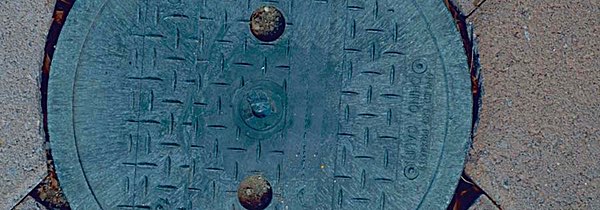- By Dan Veaner
- News
 Print
Print 
A final draft of a memorandum Of Understanding (MOU) will make it possible to create a new sewer district in the Town of Lansing, once it is approved by the three municipalities involved. The agreement was approved by the Town last week, and Town supervisor Ed LaVigne says he is hopeful that the villages will approve it over the coming weeks. At a meeting this month it was agreed that Cayuga Heights Attorney Randy Marcus would make a few changes to the initial MOU drafted by Lansing town Attorney Guy Krogh for final consideration by the three municipal boards.
"We put everything on the table and this was a great meeting," LaVigne says. "This is a win-win-win. Nobody gives up -- basically people get. There is tremendous potential here. Talk about a shared service! I can't think of a better one than three municipalities working together to either get the sewer plant repaired and up to date , if needed. Also you have the Village that will have more money coming in to expand their infrastructure. And you have the Town of Lansing that wants to build more so we can offset our losses from the PILOT for the power plant."
With no sewage treatment plant of its own, the Town of Lansing must use the plant in Cayuga Heights in the same way that the Village of Lansing does. It's simpler for the Village, because it borders its sister Village of Cayuga Heights. The Town must route its effluent through the Village of Lansing infrastructure in order to reach the treatment plant. It pays a fee to the Village of Lansing for the transport of its waste, plus fees to the Village of Cayuga Heights for treatment.
LaVigne says the agreement is similar to those for the Town's current sewer districts on Warren and Cherry Roads. The new district is initially planned to include three projects: the 140-unit rental townhouse Cayuga Farms project proposed on Triphammer Road south of Asbury Road; the nearby English Village project, and The RINK/FIELD, which is currently working on a project to construct a climbing wall at the recreational facility. Property owners within the district pay for sewer infrastructure, usage, and upkeep, so it is not paid for by property owners town-wide.
Cayuga Farms in particular has been on the drawing board for several years, but its developer has been stymied by the absence of sewer service on North Triphammer Road. At one point it was hoped he could run a pipe to a town-wide sewer that had been proposed for the South Lansing area, but that project failed to materialize. The current plan is to bring a sewer pipe from the Village of Lansing system north to the Cayuga Farms, English Village and the RINK sites.
LaVigne says that homes and businesses along the route of the sewer pipe may opt into the district, but those who do not choose to hook up will not be charged. That addresses the major concern that tanked the town-wide sewer project, namely that people who did not get or want sewer service would have to pay.
"It's not going to increase the assessed value of any property it goes by," he says. "It's not going to demand that they hook up. Their fees will be charged if they decide to hook up to sewer. It's going to be a new sewer district. The only properties in the district right now are those three entities. If (other property owners) decide to hook up the fees will be charged. They simply won't be part of that unless they choose to hook up."
Cayuga Heights Engineer Brent cross told the Village Board that the MOU grants the Town a maximum metered volume of 33,050 gallons per day. That is a change from the established system that charged for sewer use based on metered water usage. An earlier draft of the MOU would have issued service to up to 102 (sewer) dwelling units. LaVigne says the new billing is fairer, because it is based on actual sewer use.
"Now it is based on use," he says. "The new agreement knocked it down to 200 gallons a day per unit. I've been told some of these newer apartments like Village Circle and Village Solars use 70 per day. So we're switching from a fixed unit cost to an actual cost of sewer usage."
LaVigne says the Town does not pay for the sewer infrastructure. Developers will come up with over $2 million to build it, and while the Town highway Department will maintain the system, the maintenance will be paid for only by the properties within the sewer district who have hooked up to the system. As a further incentive to developers, the Town plans to apply for grants to help with the cost of building the infrastructure.
"Hopefully the Village of Lansing will pass it on July 17th," LaVigne says. "Then we can apply for some grant money - probably a shared service grant - to help with the infrastructure. The developers can start building, getting the land ready. If they have to move over (to sewer) from whatever process they use... this can be done concurrently, not consecutively."
v13i25



